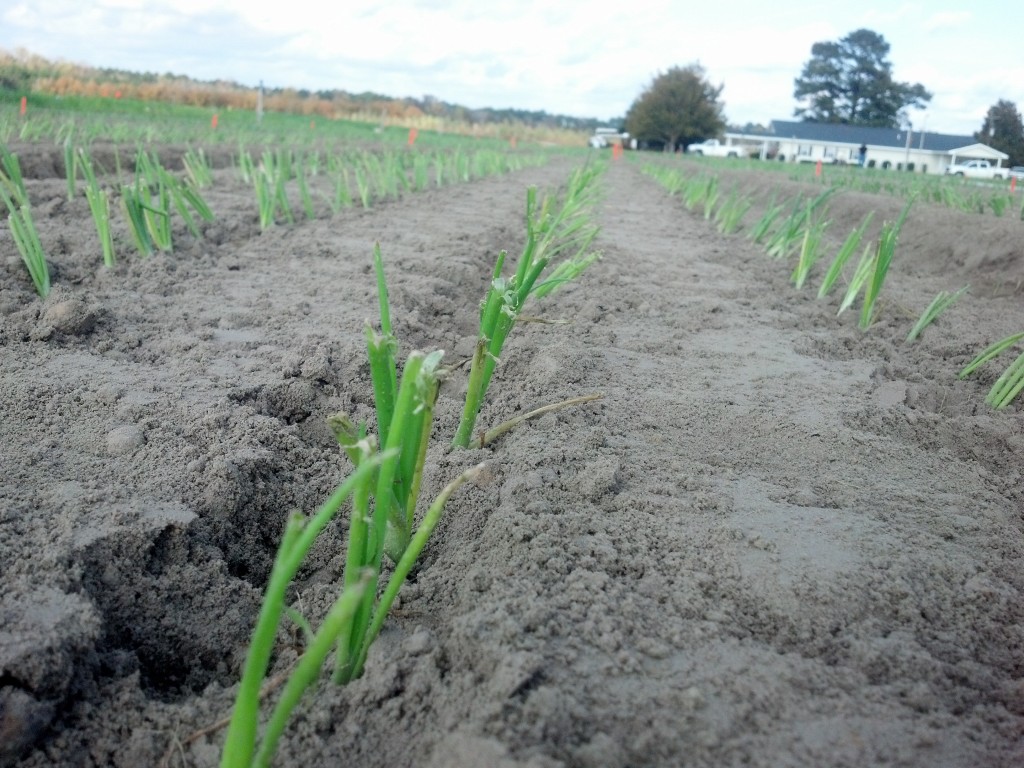There are by some counts 17 nutrients considered to be essential for plant growth and development. In this article I will briefly touch on what are called the primary plant nutrients and their role in plant growth. The three nutrients considered to be primary nutrients are: nitrogen, phosphorus, and potassium.
Nitrogen: Nitrogen has a very large effect on the growth and production of crops. Nitrogen is the nutrient is most often associated with rapid plant growth. Leaves of plants which have an adequate nitrogen supply usually have a dark green color because nitrogen is an essential part of chlorophyll, which is what gives plants their green color. Nitrogen is also a part of amino acids which are the building blocks of plant proteins. Nitrogen is taken up by plants in the two different forms which are ammonium and nitrate. The ammonium form of has a positive charge and binds to the negatively charged soil clay particles. The nitrate form of nitrogen has a negative charge such that it does not bind to the soil clay particles and is subject to leaching when leaching rains occur. The ammonium form of nitrogen will be converted into the nitrate form of nitrogen in a relatively short period of time depending on environmental conditions. Some species of plants are reported to have a preference for one form of nitrogen over another.
Phosphorus: Phosphorus is often associated with benefiting root growth and formation, early plant establishment and growth, and plant energy storage and transfer. Phosphorus is not very mobile within the soil and leaching of phosphorus below root-zone is not a concern as it is with nitrogen. Phosphorus levels can be built up in the soil with yearly applications of manure or commercial fertilizer. Having overly high levels of phosphorus can potentially inhibit the uptake of certain micronutrients in the soil if levels are low.
Potassium: Potassium has a large effect on many processes that occur within plants that are necessary for crop production. Some things that potassium has an effect on are the movement of starches and sugars through plants, photosynthesis, stalk strength, winter hardiness, fruit crop quality, and drought tolerance. Potassium is considered to be leachable on sandy soils, but not as leachable as nitrogen.
